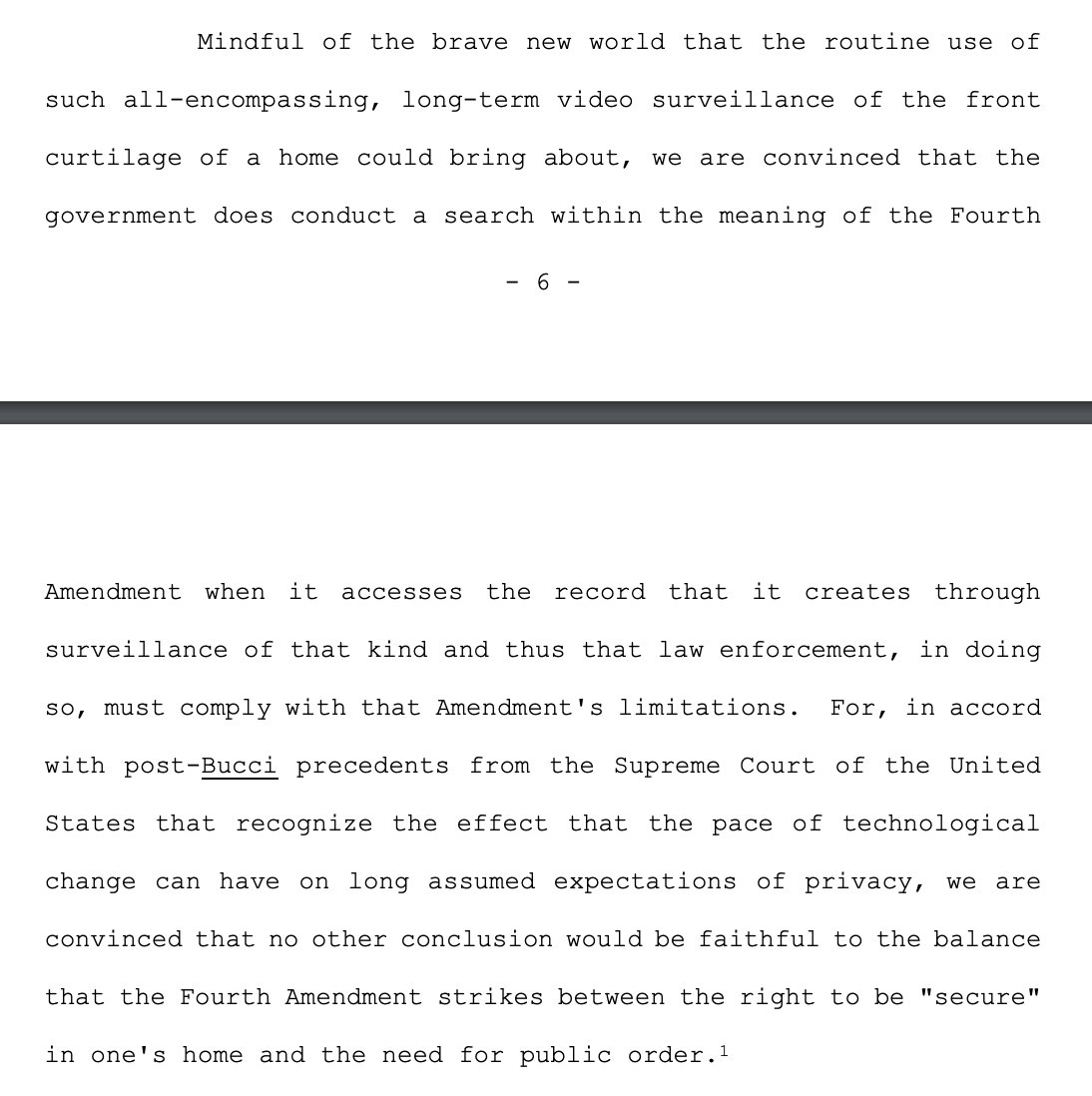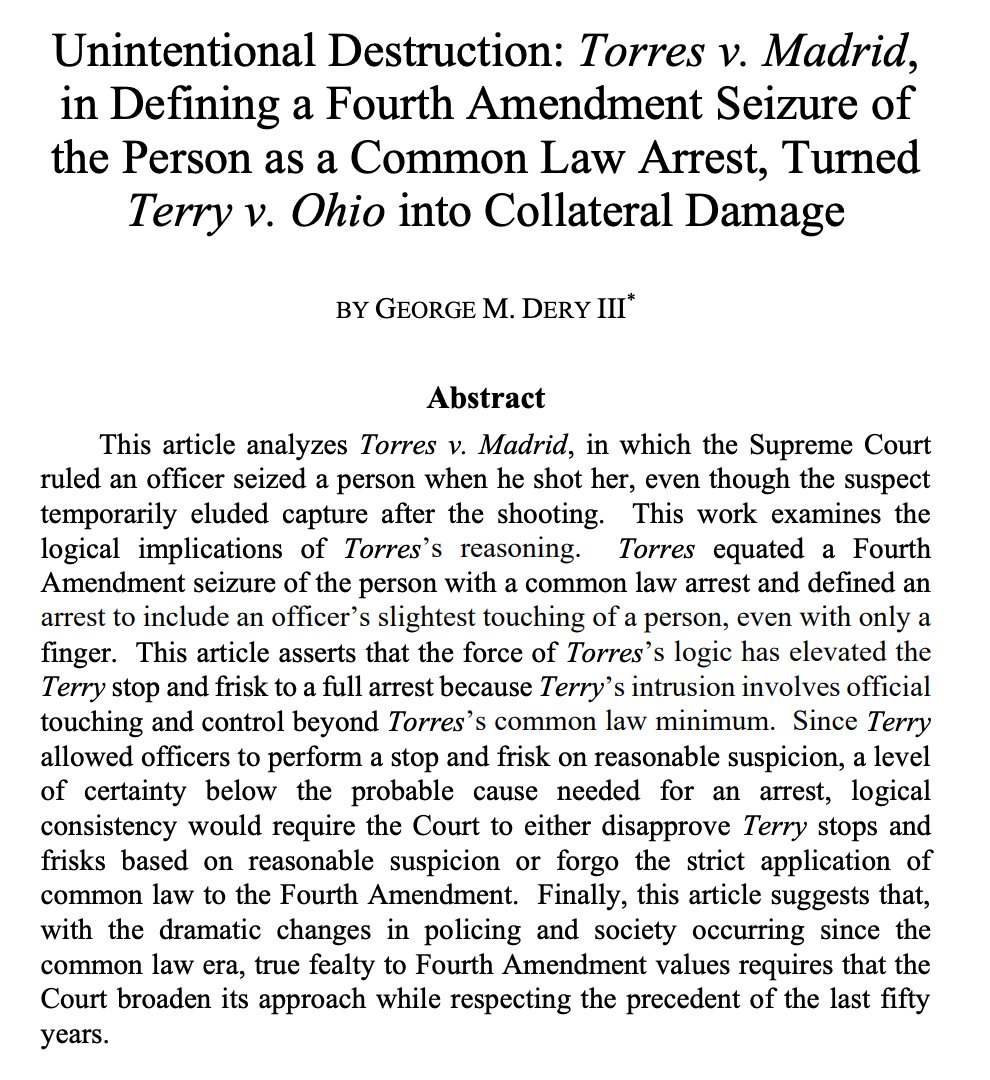
En Banc CA1 divides 3-3 on whether long-term pole camera surveillance of a house is a 4A search.
3 Js: Yes, under equilibrium-adjustment, as technology has upset the balance and we need to restore it.
3 Js: No, it's just one place, and all visible.
media.ca1.uscourts.gov/pdf.opinions/1… #N

3 Js: Yes, under equilibrium-adjustment, as technology has upset the balance and we need to restore it.
3 Js: No, it's just one place, and all visible.
media.ca1.uscourts.gov/pdf.opinions/1… #N


The three judges who thought there was a search also added a good-faith holding, though (even though the issue was waived and not argued), so that the defendant ultimately loses 6-0 instead of winning by a 3-3 tie.
It took well over a year for the opinions to come down, and Judge Barron's opinion saying that a search occurred has something like 80 pages of 4th Amendment analysis, so the obvious question is, where did he draw the line? If these facts are a search, what else is/isn't?
On a quick skim, at least, that is left unclear. These particular facts are deemed a search, but what other facts should be deemed searches has to be left to future cases.
Here's Judge Barron at page 87(!) on this.
Here's Judge Barron at page 87(!) on this.

If I understand this correctly, the upshot of several years of 4A litigation, through the en banc 1st Circuit, is that the full court can't decide if a search occurred, and the judges who say a search occurred have no answer to what *other* facts would be a search.
All the pole camera cases are just fodder for a future Supreme Court cases on this, but I admit I was hoping for more clarity about where the line is. (But then that's the mosaic theory for you: A neat idea in theory, with the slight flaw that it can't be implemented by judges.)
In terms of what happens from here, Moore & Moore-Bush could petition for cert on both issues, but there's all that much to say about the GFE: It clearly applies if it wasn't waived, so the only issue is whether there's a waiver of GFE here.
The modern Court usually (or at least often) decides Fourth Amendment cases as pure advisory opinions, in which it's clear the outcome won't affect the parties b/c of the GFE. So it would be in keeping with that, if SCOTUS wants to decide the issue, to only grant on the 4A issue.
If SCOTUS finds a search in the facts, then it could remand to the CA1 for a ruling on the GFE, where the waiver issue could be litigated. Will be interesting to see what happens, stay tuned as always.
• • •
Missing some Tweet in this thread? You can try to
force a refresh










